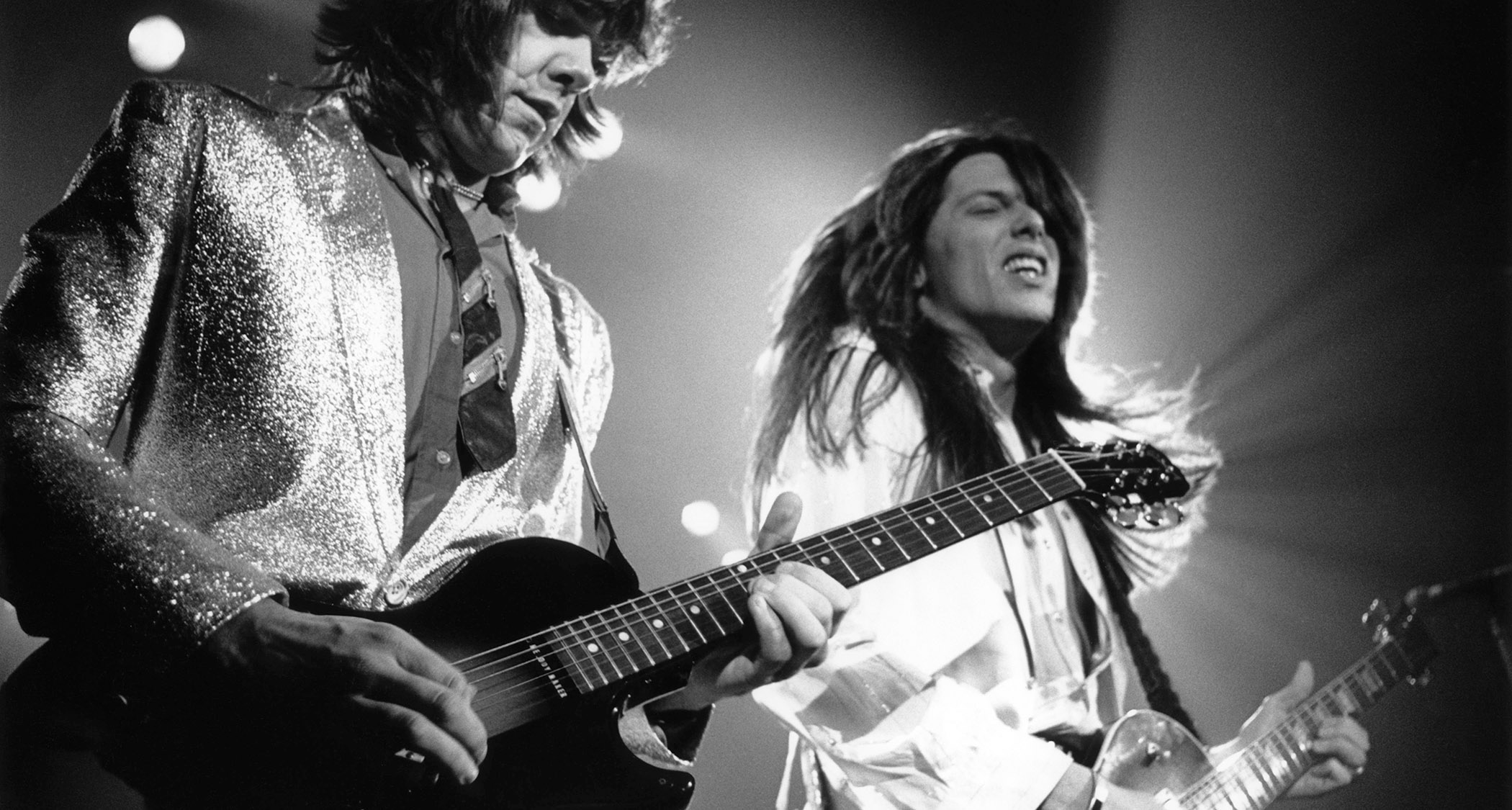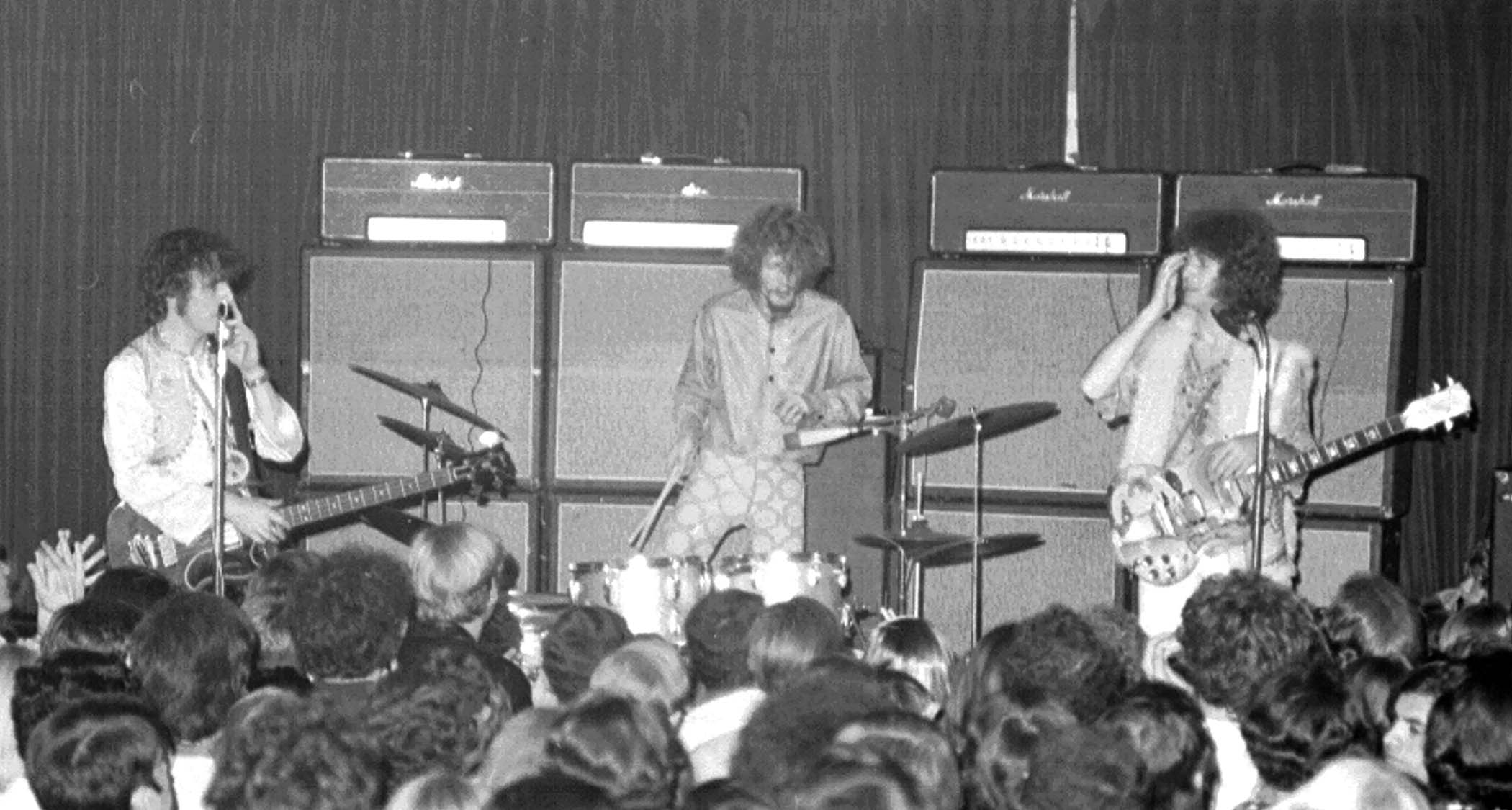“You gotta quit at the right moment, and Gary did the worst thing any band member can do. I was angry, man”: Scott Gorham on how his guitar partnership with Gary Moore came to a dramatic end – and building bridges with the late guitar hero decades later
The Belfast-born virtuoso brought blues-rock fireworks to Thin Lizzy's sound and a muscular foil for Gorham who was always trying something different

All the latest guitar news, interviews, lessons, reviews, deals and more, direct to your inbox!
You are now subscribed
Your newsletter sign-up was successful
Gary Moore’s on/off relationship with Lizzy is one of the great flirtations in rock ’n’ roll, the storied Belfast guitarist passing by like a meteor for three blink-and-miss-it shifts in the ’70s.
Moore was a master technician who pre-dated Gorham’s tenure (and played on the sublime Still In Love With You from 74’s Nightlife), so did the Californian ever feel threatened by his return? It’s the only time he shows a flicker of irritation.
“Y’know, I’ve been asked that before and actually I don’t get that question. I was thrilled that this guy was gonna come into the band – because I knew what he could do. I knew that, once again, here was a guy I could feed off and learn some really great shit off of him, right? Gary was one of those absolute natural-born guitar players.”
Just as important, as the band embarked on 1977’s US tour supporting Queen, was that Moore had two functioning hands – Robertson having ruled himself out after a brawl at The Marquee.
“Because Gary had played with Lizzy before, he knew the songs,” reasons Gorham, “and if you threw something new at him, he was gonna get it really quickly. Which is what we needed. Because Robbo had busted his hand, we were on the plane and we were like, ‘Gary, we gotta get this shit done, man!’ And he did.”
Live shots from the period show both players jousting on Les Pauls in front of a wall of Marshall amps.
“Yeah, Gary was already playing his Peter Green Les Paul, and I’d finally got my 1957 Les Paul, which I bought in Boston,” says Gorham. “Every once in a while, he had an SG he would pull out. But 90 per cent of the time, it was the two Les Pauls.
All the latest guitar news, interviews, lessons, reviews, deals and more, direct to your inbox!
“You have to remember, with the Queen tour, we only had 45 minutes, so there’s not a lot of switching guitars, detunings and all that crap. It was just like, ‘Boom – let’s go!’
If Phil and I were going to a club and Gary came out with us, he’d sit on his own and wouldn’t engage
“Pairing Les Pauls works because they both have similar sounds,” he continues. “The difference comes from the way the player attacks the strings.
“Gary was great with that. He’d attack the guitar with different velocities to bring out different tones. He was so inventive. I remember, he came up to me one day and said, ‘Check this out – doesn’t this sound like bagpipes?’ I was like, ‘Goddamn, it does! What are you gonna use that for?’
“And he said, ‘Nothing, I just wanted to see if I could do it.’ I don’t think Gary really liked repeating himself every night on tour, but you kind of have to in those situations.”
Without guitars in their hands, however, Gorham says it was harder to bond with the Irishman. “I can see why people would say Gary was a hard guy to get to know. If Phil and I were going to a club and Gary came out with us, he’d sit on his own and wouldn’t engage. After a while, he stopped coming out. He just stayed in the hotel. It was always me and Phil hanging out and he might have felt a little excluded.”
In the studio, Moore made his defining mark on 1979’s Black Rose: A Rock Legend.
“My favourite track has gotta be Black Rose,” says Gorham. “Gary came up with that whole middle section. I’ve played it with other guitar players and they just couldn’t handle it, John Sykes being one of them. There’s a whole ton of harmony work going on. You’ve gotta be on your game to pull that song off. There’s no resting point. Once you hear the ‘1-2-3-4’, you’re in it, man!
“Waiting For An Alibi is another one. I took the solo on that, but it was Gary who came up with the little melody at the end. I’ll admit, when I first heard it, I went, ‘Goddammit Gary, we’re gonna have to pull that off every night!’”

Plainly, there was gas in the tank. But Moore’s third and final exit left a sour taste, the Irishman quitting midway through a US tour in July 1979. Lizzy never regained their Stateside momentum and Gorham was justifiably furious.
You gotta quit at the right moment, and Gary did the worst thing any band member can do. I was angry, man. You just don’t do that
“I think, towards the end there, Gary really did want to play all the guitars,” he reflects. “He just wanted it to be him and him alone. And y’know, that would have been fine [for him to leave for a solo career]. Both Phil and I would have been, ‘Okay, cool. This is not a jail sentence. No band is.’
“But you gotta quit at the right moment, and Gary did the worst thing any band member can do. I was angry, man. You just don’t do that. All the work we’d put in and you just stepped out the back door? Like, what the fuck, man?”
It took the 1986 death of Lynott to mend fences between the two guitarists, and when Moore himself passed in 2011, they parted as friends.
“In the ensuing years, Gary kept trying to apologise to me. When we did the tribute to Phil in Dublin, he pointedly asked me to come over, and he just couldn’t apologise enough for quitting the tour.
“So I said, ‘Well, it was a dick move. But hey, you’ve apologised and I forgive you – let’s just walk away from that one.’ And we were friends after that, y’know?”
Henry Yates is a freelance journalist who has written about music for titles including The Guardian, Telegraph, NME, Classic Rock, Guitarist, Total Guitar and Metal Hammer. He is the author of Walter Trout's official biography, Rescued From Reality, a talking head on Times Radio and an interviewer who has spoken to Brian May, Jimmy Page, Ozzy Osbourne, Ronnie Wood, Dave Grohl and many more. As a guitarist with three decades' experience, he mostly plays a Fender Telecaster and Gibson Les Paul.
You must confirm your public display name before commenting
Please logout and then login again, you will then be prompted to enter your display name.

